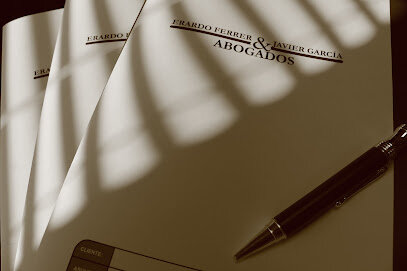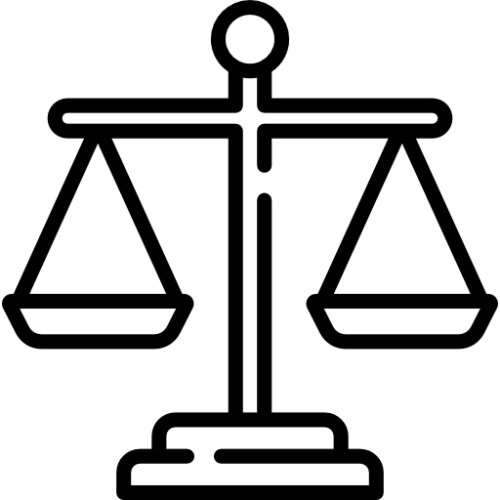Best Landlord & Tenant Lawyers in Arrecife
Share your needs with us, get contacted by law firms.
Free. Takes 2 min.
Free Guide to Hiring a Real Estate Lawyer
List of the best lawyers in Arrecife, Spain
About Landlord & Tenant Law in Arrecife, Spain
Landlord and tenant law in Arrecife, the capital of Lanzarote in Spain's Canary Islands, is based primarily on the national Urban Leases Act (Ley de Arrendamientos Urbanos or LAU) and supported by local Canary Islands regulations. This legal area covers the rights and responsibilities of property owners who rent out residential or commercial spaces and the individuals or businesses who rent them. Arrecife’s rental market includes both long-term and vacation properties, making it essential to understand the relevant laws whether you are an expat, local resident, seasonal worker, or property investor.
Why You May Need a Lawyer
Legal issues can quickly arise in landlord and tenant relationships. You may need a lawyer for situations such as:
- Disputes over unpaid rent or utility bills
- Eviction processes for nonpaying or problematic tenants
- Questions about the validity or interpretation of a rental contract
- Issues relating to property damage or required repairs
- Recovery of security deposits at the end of tenancy
- Unlawful entry or privacy violations by landlords
- Disagreements about rent increases or contract renewals
- Handling illegal subletting or unauthorized occupants
- Dealing with short-term vacation rentals and local regulations
- Difficulties arising from changes in property ownership
Legal guidance ensures your rights are protected and helps navigate complex procedures, especially in a region like Arrecife with a dynamic rental market and unique local customs.
Local Laws Overview
Arrecife and the Canary Islands follow Spain’s national Urban Leases Act, which governs rental relationships. Key points relevant to landlords and tenants include:
- Rental Contracts - While oral contracts are valid, written agreements are strongly recommended and legally required for contracts exceeding one year.
- Duration of Tenancies - Residential leases typically have a minimum duration of five years if the landlord is an individual, or seven years for corporate landlords.
- Rent Increases - Rent can only be increased annually based on government indexes unless otherwise agreed. Advance notice is required.
- Deposit Requirements - A one-month deposit is usually required for residential leases, held for the duration of the contract and regulated by law.
- Eviction Procedures - Landlords must follow specific court procedures to evict tenants legally. Unlawful self-help eviction is prohibited.
- Maintenance and Repairs - Landlords are responsible for major repairs and maintenance, while tenants must handle minor upkeep unless otherwise stipulated.
- Termination of Contract - Both parties must provide proper notice to end a tenancy. Early termination is possible in some circumstances established by law.
- Short-Term Rentals - Special regulations, including licensing, apply to vacation rentals in the Canary Islands. Local authorities may impose additional requirements.
It is important to check any specific local ordinances or community rules (comunidad de propietarios) that may affect rental arrangements in Arrecife.
Frequently Asked Questions
What is the minimum duration for a residential rental contract in Arrecife?
The minimum period is five years if the landlord is an individual, or seven years for company landlords. After this, the contract can be renewed annually unless notice to terminate is given.
How much deposit can a landlord request?
The law requires landlords to request no more than one month's rent as a deposit for residential leases, plus additional guarantees if both parties agree.
Can a landlord increase the rent during the tenancy?
Yes, but only once per year and only in line with agreed terms or the official Consumer Price Index (CPI), unless other agreements are specified in the contract.
What happens if the tenant does not pay rent?
The landlord can initiate legal proceedings for eviction. The tenant will be notified and given a chance to pay arrears or vacate the property before being removed by court order.
Who is responsible for repairs and maintenance?
Landlords are responsible for structural, major, or urgent repairs. Tenants are responsible for minor and routine maintenance unless the contract specifies otherwise.
Is it possible to terminate a rental contract early?
Yes. Tenants can leave after six months by giving at least 30 days' notice. Landlords can only terminate under specific conditions established by law, such as personal use.
How do I recover my deposit at the end of the tenancy?
The deposit must be returned within one month from the end of the contract, minus deductions for unpaid rent or damages beyond normal wear and tear.
Are there special requirements for vacation or short-term rentals?
Yes. Short-term and holiday rentals are subject to local licensing, registration, and specific Canary Islands tourism regulations.
What should be included in a rental contract?
It should specify the property details, rent, duration, parties' identities, payment methods, deposit, responsibilities for maintenance, and any other specific agreements.
What can I do if the landlord enters the property without permission?
Unless there is an emergency, landlords cannot enter without tenant consent. Illegal entry can be reported to local authorities or the courts.
Additional Resources
For more information or to seek assistance, consider these resources:
- Arrecife City Council (Ayuntamiento de Arrecife): Offers local information on housing regulations and tenants' rights.
- Canary Islands Consumer Office: Provides guidance for tenants and landlords on rental disputes.
- Official College of Lawyers of Lanzarote (Ilustre Colegio de Abogados de Lanzarote): Offers lawyer referral services and legal consultations.
- Local Community Associations: Some neighborhoods have associations that mediate landlord-tenant issues.
- Urban Leases Act (Ley de Arrendamientos Urbanos): The principal Spanish legislation governing rentals.
Next Steps
If you require legal assistance regarding landlord and tenant issues in Arrecife, take the following steps:
- Gather all relevant documents, such as your rental contract, receipts, correspondence, and evidence about the dispute.
- Consider contacting one of the listed resources for initial advice or to locate a specialized lawyer.
- Arrange a consultation with a lawyer experienced in landlord and tenant law, ideally someone familiar with local regulations in Arrecife.
- Discuss your options and potential steps, which may include negotiation, formal complaint, or legal action.
- Follow your lawyer’s instructions carefully to protect your rights and achieve the best possible outcome.
Prompt legal advice can prevent larger problems and help resolve disputes effectively. Do not hesitate to seek assistance as soon as an issue arises.
Lawzana helps you find the best lawyers and law firms in Arrecife through a curated and pre-screened list of qualified legal professionals. Our platform offers rankings and detailed profiles of attorneys and law firms, allowing you to compare based on practice areas, including Landlord & Tenant, experience, and client feedback.
Each profile includes a description of the firm's areas of practice, client reviews, team members and partners, year of establishment, spoken languages, office locations, contact information, social media presence, and any published articles or resources. Most firms on our platform speak English and are experienced in both local and international legal matters.
Get a quote from top-rated law firms in Arrecife, Spain — quickly, securely, and without unnecessary hassle.
Disclaimer:
The information provided on this page is for general informational purposes only and does not constitute legal advice. While we strive to ensure the accuracy and relevance of the content, legal information may change over time, and interpretations of the law can vary. You should always consult with a qualified legal professional for advice specific to your situation.
We disclaim all liability for actions taken or not taken based on the content of this page. If you believe any information is incorrect or outdated, please contact us, and we will review and update it where appropriate.










